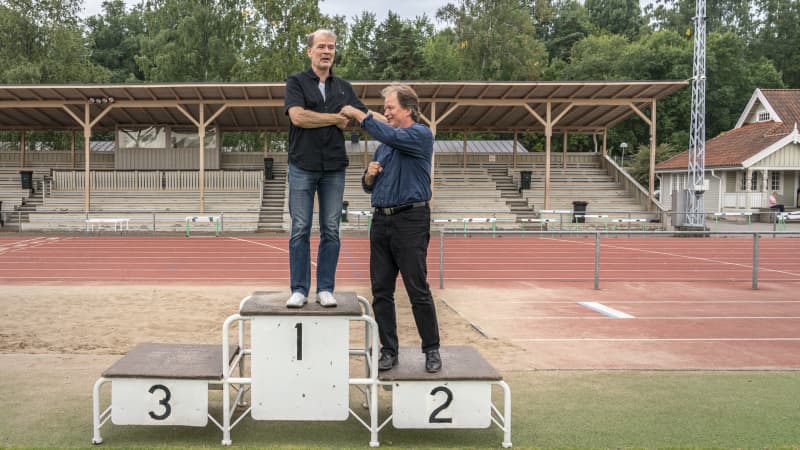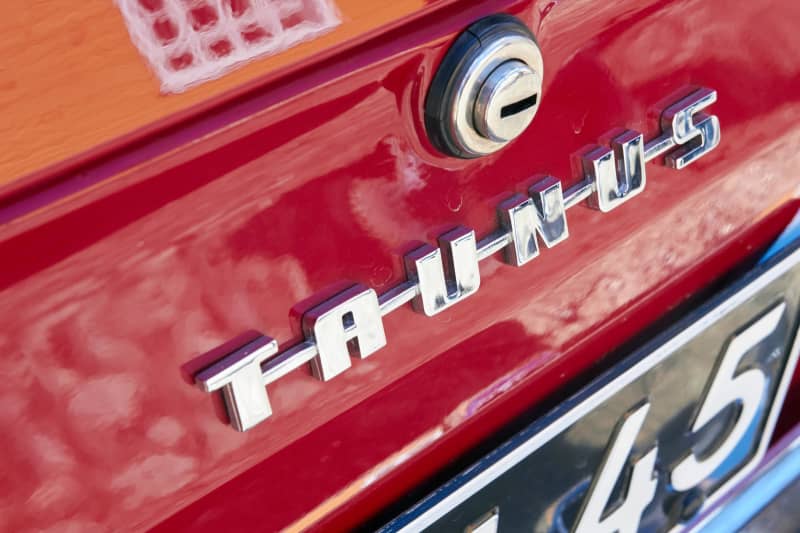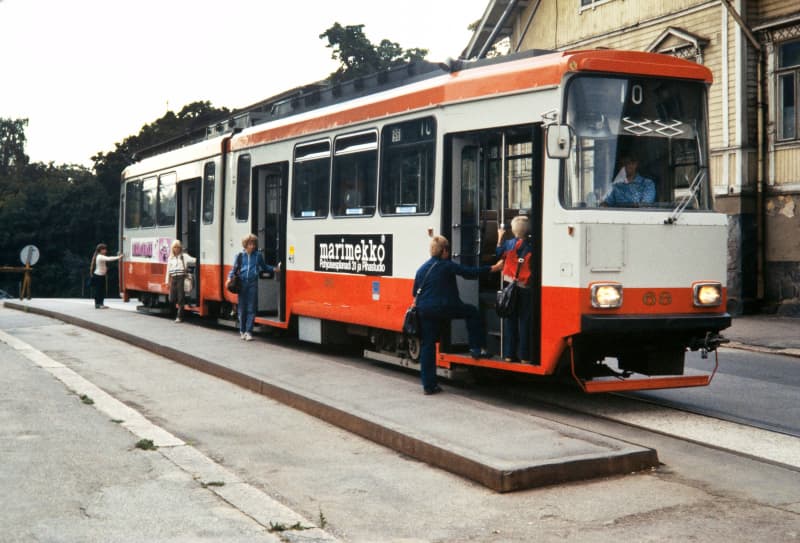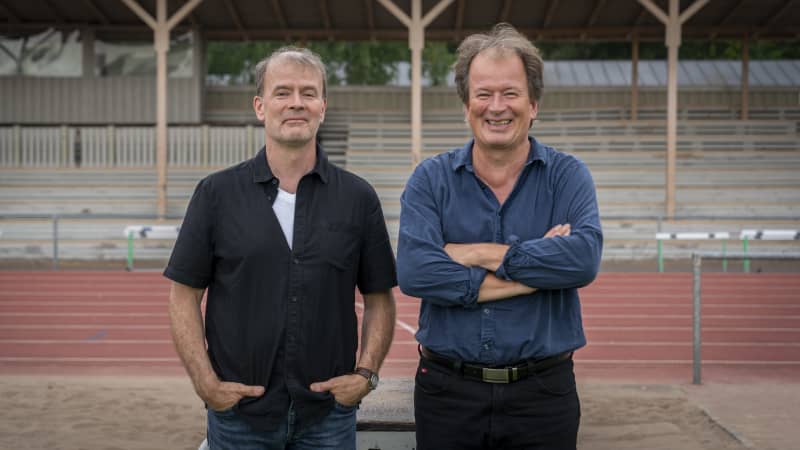Kjell Westö’s first memory is driving to see his mother in a psychiatric hospital. Mårten is lying in the basket on the back seat.
– No, I was just dreaming. I don’t really remember from where, Mårten laughs.
The sports field of the coincidences was chosen as the meeting place, because sport is one factor that unites the writer brothers. The other is Helsinki and its history, and the field is also related to that. The Wests are also united by, among other things, music and, of course, written work.

_Vuodet_ is the brothers’ first joint work. They speak as a collection consisting, according to their definition, of mini-essays, short stories and memories of the lives of both writers.
This is not a letter novel, although the Westös have also written letters to each other. Mårten has saved them, and many maps have accumulated. Over the decades, the letters have discussed family matters, but also topics related to writing. Sometimes the post office carried a lot of statements.
– I myself had run away from my bourgeois background into bands and writing. And then I noticed that the little broid was coming after me. So there was a bit of tension, Kjell recalls.
The secret of the sons of a bourgeois family
The Westö brothers are six years apart in age. Kjell is the firstborn, Mårte’s bump. They say that they lived both a common and a separate childhood.
Kjell Westö’s first clear memory is the car trip from Helsinki to Veikkola sanatorium, where his mother was treated for depression. Six-year-old Kjell was sitting in the back seat, and little Mårten was lying next to him in his bassinet.
In the book, Kjell tells other memories from his childhood in the 1970s. Mårten thought it was especially great to read about the times when he was still too young to remember.
– And, when I became a teenager, Kjell moved away from home. We have periods when we didn’t get along terribly well with each other, says Mårten.
– Now I realize that I knew almost nothing about you at the time, admits Kjell.

When high school age Mårten came from school to his then home in Ruskeasuo, Helsinki, he glanced at the bedroom window. If the curtains were in front, mother had not been able to pull them open. Mother was lying in bed or sitting at the kitchen table staring at the cooled tea in a cup.
In his essay _Sauvontie_, Mårten tells how the mother’s apathy knew that the son had to act. He picked up ready-made food from the store and after that we ate spinach soup for a long time. Until grandma came to help. As always before.
Mother’s depression was a shadow in the Westö brothers’ childhood and youth, but it doesn’t seem to have left much bitterness behind. Both speak fondly of their mother. Life was otherwise reasonably serene.
For Mårten, the parents’ divorce also came as a surprise. The family lived in Munkkiniemi. Dad always changed the car to a newer and nicer one. The boys looked at the car in the parking lot with pride. The parents seemed to be living the prosperous middle-class dream.
– We were a bourgeois family with a monk cape, whose dinner table could sometimes be a bit quiet, describes Kjell.
Even though mom increasingly adored the comfort of her yellow armchair, the bright seasons were positive.
– Mother was really supportive, interested in literature and music. When he was healthier, he was delightful company. says Mårten.
Kjell admits that he was afraid that he would get depressed himself, Mårten doesn’t remember having such thoughts. In the last days, they took care of the mother together. The Westö brothers’ mother died in 2015.
In the chapter _The Yellow Chair_, Kjell tells how the boys dragged their mother’s armchair to the landfill on a clear, cold winter day in 2018. The chair could no longer fit in anyone’s storage, and it was not worth refurbishing. As the chair flew among the other abandoned furniture, the boys fell silent for a moment and Kjell realized something.
No matter how passionately we live, everything eventually sinks into oblivion. Life remains an armchair that is thrown away.
Memories drawn on the body
We look at the sports field for a moment.
There is only one trainer on the field with his coaches making running moves. A runner raises his knees high while sprinting on the track.
Paavo Nurmi and Ville Ritola once ran on the same track. For many decades, instead of runners and throwers, racing cars conquered the field on one spring weekend.
That too is part of the history of the Westö brothers’ hometown of Helsinki.

Both admit that they both love and criticize Helsinki.
And both have had a phase when they had to get out of the city, travel to Europe or drive a bus around the United States, to get some oxygen.
– Even in the 80s, it was the case that if something was not recommended, it was forbidden. Today’s Helsinki is much more diverse and happier than the city where I grew up, says Kjell.
Mårten says that he lived with his future wife in Paris in 1989. It was a transformative experience.
– I read one of the texts of the _Vuodet_ book when I was writing that even in 1990, there were only 5,000 foreign-born people in Helsinki. Now the number is around 60,000 and the difference is huge.
For a long time, Finland felt like a loser.
Both have gained building blocks for their careers as writers from being European. And an understanding of the interweaving of private and public history. Kjell says that he has written about that in his books.
According to Mårten, writing can sometimes make it easier to look at a certain time, its social turmoil and one’s own life alongside it.
– When I was starting a family, the Berlin Wall came down. At the time, it was difficult to grasp how significant an event it really was, says Mårten.
Kjell says that he has thought a lot about why some small and private moments remain in the body’s memory, as it were, and often better than the big upheavals.
– So in the book of the Year, I decided to start from a sensory memory like this every time.
Time drove past sports
Writing the book _Years_ was originally Mårten’s idea. Kjell empi for a moment. Then he also realized that it would be crazy not to write. When they once, scions of the same family, have chosen this same profession.
The funniest memories in the book are the moments that Mårten tells about in the chapter J.A.G.. In it, Mårten lives with his English childhood friend in English league football.
Football became Mårten’s passion, and older brother Kjell has also followed it for years. Both brothers and their sons are athletic. The sons were even more successful in football than the fathers.
Now the interest in sports has taken on a different, less intense form. According to Mårten, football has lost its luster.
Kjell has a critical attitude towards sports.
– Sport has been ruined by money. Even football, which I consider the most beautiful sport in the world.
– Organizations like Fifa or Uefa or the International Olympic Committee should be dismantled and rebuilt. Only in that way would the sport be purified, says Kjell Westö.
We should still have time to talk about music and gardening and the archipelago with these brothers. They are also the subjects of the _Vuodet_ book.
But a dark cloud approaches from behind the Olympic Stadium, and a gust of wind blows the leaves yellowed by the dry summer into the air. The Westös have to jump on their bikes and cool off at home before the storm rises.
Soon the rain is whipping the tartan of the sports field and scratching the roof of the wooden stand.
_Watch and listen:_

